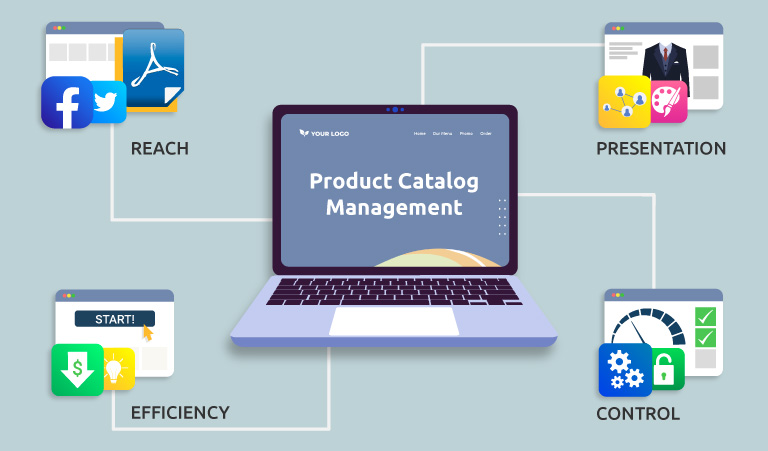In physical stores, the shopping experience of the customer is heavily influenced by the product display, the way retailers enhance the store interior, and their in-store resources. These efforts are more than enough to make a very first impression on the customers and magnify their buying decisions.
While in online stores, it entirely depends upon the way you represent your website to the customers. More specifically, how you display your products to the customers is all that matters. In our very own expression, we call this process in simple words 'Product Catalog Management'. You might be wondering what it is, why it matters, and how to manage it so that customers are delighted. But before learning about Product Catalog Management, it is foremost to learn about what exactly is a product catalog. Let's take a look at what's next.
Product Catalog Overview:
So, what exactly is a product catalog?
A product catalog is simply a collection of data on all of the products you're willing to display on your website. A product catalog on a website serves the same purpose as a product display booth in a physical store. The information in product catalogs is classified into several sub-categories based on customer understanding or a business purpose, which vary by industry.
A product catalog is simply defined as a comprehensive list of products organized logically. This form of structure has always been important and effective in business, since the beginning and it hasn’t changed yet. Now as you might have an idea about what a product catalog is, let’s understand how to organize, structure, and manage these catalogs. Generally, companies use catalog management tools to manage their product information, one such tool is CatalogsBuilder which is easiest to use as compared to many other tools as they require expertise to learn and execute it. You can learn more about the CatalogsBuilder tool here.
What is Product Catalog Management?
A product catalog management is a process of combining an organized product catalog with online management software. The goal is to offer product information uniformly to the customers across all the online sales channels. It's an important customer-first sales technique that can make or break any business.
Product catalog management has now become a need in the retail industry. The charge of handling the process in product catalog management includes structuring, organizing, standardizing, and distributing product information across all online sales channels. Simply stated, it's all about keeping the product database up to date and organized.
Catalogs have evolved, and their utilitarianism is significantly noticeable and iconic. Do you remember that old-school, classic, oversized Lowes print catalogs? Definitely, how can one forget that right! But today, to engage with any particular product/ brand, by only finger-swiping through the digital catalog, we can discover its whole. These digital catalogs can reach millions of viewers at a time via bots and virtual concierges spread across multiple platforms.
Although many things have changed, some things are still the same as in our iconic print catalogs: The accurate and up-to-date product information curated by merchants in order to build a product line, engage more buyers and leave a happy impression on the customers. Despite just product catalogs, product tracking methods have also evolved. It has progressed from manually entering zillions of manually written entries into ledger accounts to typing into thousands of Excel spreadsheet cells to off-the-shelf software platforms. Today, with the click of a button, we can easily distill massive amounts of inventory data.
Of course, all of this emphasizes the importance of a good product catalog management system. It is crucial to publish the product information in an organized and consistent manner throughout all the sales channels. It needs to embrace the omnichannel experience and sell through various channels.
How Can CatalogsBuilder Help?
For any sort of business, selecting a product catalog management platform can be difficult and time-consuming. Users can manage product catalogs, adjust pricing, handle orders, control inventory, and keep records of customer details with Catalogsbuilder's catalog management features.
You can choose the most appropriate commerce platform for catalog management based on your business environment and needs.
Contact one of our specialists to know more about how CatalogsBuilder can benefit your business.









Madhur Gautam
How does product catalog management contribute to an omnichannel retail strategy?